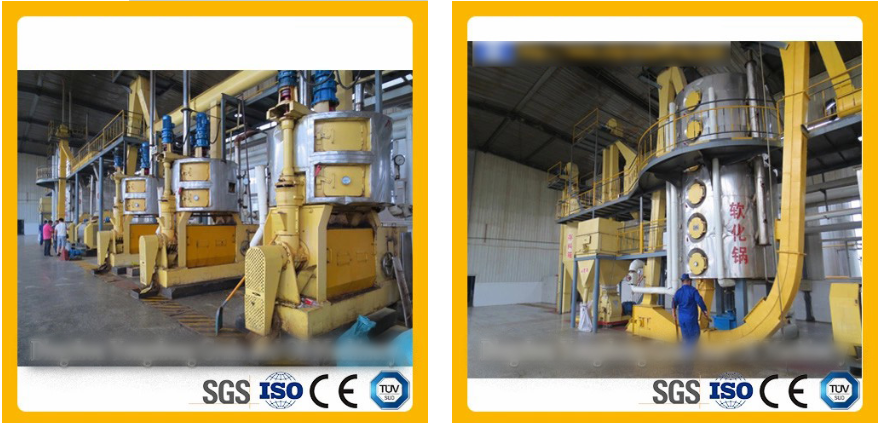Dec . 10, 2024 05:48 Back to list
Rapeseed Oil Refinery Plant Production and Process Optimization Solutions
The Role of Rapeseed Oil Refining Units in Modern Agriculture
Rapeseed oil, derived from the seeds of the rapeseed plant, is a versatile edible oil widely used in cooking, food processing, and biodiesel production. Over the years, the demand for rapeseed oil has surged due to its health benefits, including a favorable fatty acid profile and high levels of omega-3 and omega-6 fatty acids. However, the quality of rapeseed oil plays a critical role in determining its market value and consumer acceptance, leading to the necessity of refining processes. This article explores the significance of rapeseed oil refining units in the agricultural sector, focusing on their operations, technological advancements, and the impact on the economy.
Understanding Rapeseed Oil Refining
The refining of rapeseed oil is a crucial process that enhances the oil's purity, stability, and quality. Raw rapeseed oil contains impurities such as free fatty acids, phospholipids, and various types of waxes that need to be removed to meet regulatory and consumer standards. Besides, refining helps in eliminating undesirable odors and flavors, improving the overall sensory characteristics of the oil.
The refining process typically involves several stages degumming, neutralization, bleaching, and deodorization. Degumming removes phospholipids and other hydrophilic impurities by treating the oil with water or acid. Neutralization is the process of removing free fatty acids by treating the oil with an alkaline solution. Bleaching removes pigments and minor components, while deodorization involves steam distillation to eliminate volatile compounds that contribute to odor and taste.
Technological Advancements in Refining Units
In recent years, rapeseed oil refining units have witnessed significant technological advancements. Modern refining techniques leverage high efficiency and lower energy consumption, which are crucial for economic viability. Continuous refining processes have replaced traditional batch methods, allowing for larger volumes of oil to be processed with minimal downtime and reduced labor costs.
rapeseed oil refining unit factory

Innovative technologies like membrane filtration and enzymatic degumming have also emerged. These methods not only enhance the quality of the refined oil but also minimize waste generation during the refining process. Additionally, advancements in automation and control systems have increased the precision of operations, ensuring a consistent and high-quality product.
The integration of sustainability practices is another notable trend in rapeseed oil refining. With growing concerns over environmental impact, many refining units are adopting eco-friendly processes and waste management systems. This shift not only addresses consumer demand for sustainable products but also contributes to the overall efficiency of the production cycle.
Economic Impact of Rapeseed Oil Refining
The rapeseed oil refining industry plays a vital role in the economy, particularly in agricultural regions where rapeseed is a major crop. The establishment of refining units creates job opportunities across multiple sectors, including agriculture, manufacturing, and distribution. Furthermore, these units contribute significantly to the local and national economies by adding value to raw agricultural products.
In addition to domestic benefits, rapeseed oil is a significant export commodity. Countries with robust refining units can process and export high-quality oil, enhancing their competitiveness in the global market. The processed oil not only meets the demand for edible oils but is also sought after for biodiesel production, particularly in regions emphasizing renewable energy sources.
Conclusion
In conclusion, rapeseed oil refining units are a cornerstone of the agricultural industry, transforming raw agricultural products into high-value consumables. They play an essential role in enhancing oil quality and ensuring consumer safety while contributing to economic growth and job creation. As technology advances and sustainability becomes increasingly important, these refining units are poised to adapt and thrive in the ever-evolving landscape of the food and energy markets. The continuous improvement and innovation within the rapeseed oil refining sector will be crucial in meeting both consumer demands and environmental goals, ensuring a bright future for this vital industry.
-
Popular Commercial Oilseed Crushing Machinery | High-Yield Oil Expeller Press
NewsAug.24,2025
-
Food Oil Refined Unit Companies: Leading Manufacturers & Exporters
NewsAug.23,2025
-
Expert Oil Filter Machine Service & Solutions | Quality & Reliability
NewsAug.22,2025
-
LZY-206 Double Screw Cold Oil Press – Maximize Yield, Preserve Nutrients
NewsAug.21,2025
-
Efficient Black Seed Oil Expeller & Multi-Seed Oil Press
NewsAug.19,2025
-
HP 120 Model Cold Oil Press-Hebei Huipin Machinery|Energy Efficiency, Multi-Functionality
NewsAug.18,2025
